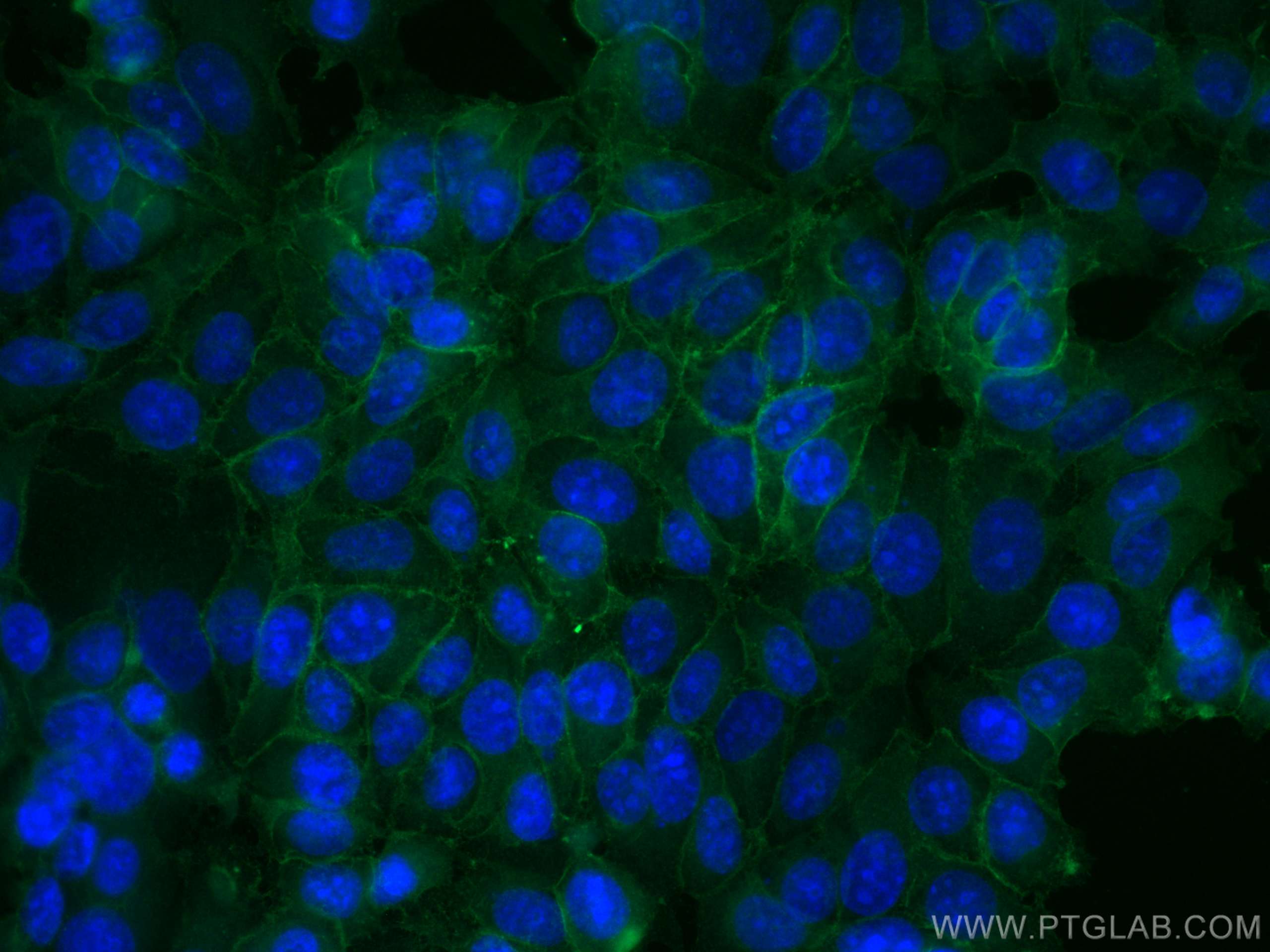Anticorps Monoclonal anti-EPCAM/CD326
EPCAM/CD326 Monoclonal Antibody for IF
Hôte / Isotype
Mouse / IgG2a
Réactivité testée
Humain
Applications
WB, IF
Conjugaison
CoraLite® Plus 488 Fluorescent Dye
CloneNo.
2A2D5
N° de cat : CL488-66316
Synonymes
Galerie de données de validation
Applications testées
| Résultats positifs en IF | cellules MCF-7, |
Dilution recommandée
| Application | Dilution |
|---|---|
| Immunofluorescence (IF) | IF : 1:50-1:500 |
| It is recommended that this reagent should be titrated in each testing system to obtain optimal results. | |
| Sample-dependent, check data in validation data gallery | |
Applications publiées
| WB | See 1 publications below |
Informations sur le produit
CL488-66316 cible EPCAM/CD326 dans les applications de WB, IF et montre une réactivité avec des échantillons Humain
| Réactivité | Humain |
| Réactivité citée | Humain |
| Hôte / Isotype | Mouse / IgG2a |
| Clonalité | Monoclonal |
| Type | Anticorps |
| Immunogène | EPCAM/CD326 Protéine recombinante Ag15393 |
| Nom complet | epithelial cell adhesion molecule |
| Masse moléculaire calculée | 314 aa, 35 kDa |
| Poids moléculaire observé | 35-40 kDa |
| Numéro d’acquisition GenBank | BC014785 |
| Symbole du gène | EPCAM |
| Identification du gène (NCBI) | 4072 |
| Conjugaison | CoraLite® Plus 488 Fluorescent Dye |
| Excitation/Emission maxima wavelengths | 493 nm / 522 nm |
| Forme | Liquide |
| Méthode de purification | Purification par protéine A |
| Tampon de stockage | PBS avec glycérol à 50 %, Proclin300 à 0,05 % et BSA à 0,5 %, pH 7,3. |
| Conditions de stockage | Stocker à -20 °C. Éviter toute exposition à la lumière. Stable pendant un an après l'expédition. L'aliquotage n'est pas nécessaire pour le stockage à -20oC Les 20ul contiennent 0,1% de BSA. |
Informations générales
Epithelial cell adhesion molecule (EpCAM, CD326) is a type I transmembrane glycoprotein that functions as a homophilic, epithelial-specific intercellular cell-adhesion molecule. In addition to cell adhesion, EpCAM is also involved in cellular signaling, cell migration, proliferation, and differentiation. EpCAM is highly expressed on most carcinomas and therefore of potential use as a diagnostic and prognostic marker for a variety of carcinomas, and has become a therapeutic target. (PMID: 20837599; 19249674; 21576002; 22647938)
Protocole
| Product Specific Protocols | |
|---|---|
| IF protocol for CL Plus 488 EPCAM/CD326 antibody CL488-66316 | Download protocol |
| Standard Protocols | |
|---|---|
| Click here to view our Standard Protocols |
Publications
| Species | Application | Title |
|---|---|---|
Cell Death Discov MCM2 promotes the stemness and sorafenib resistance of hepatocellular carcinoma cells via hippo signaling |


